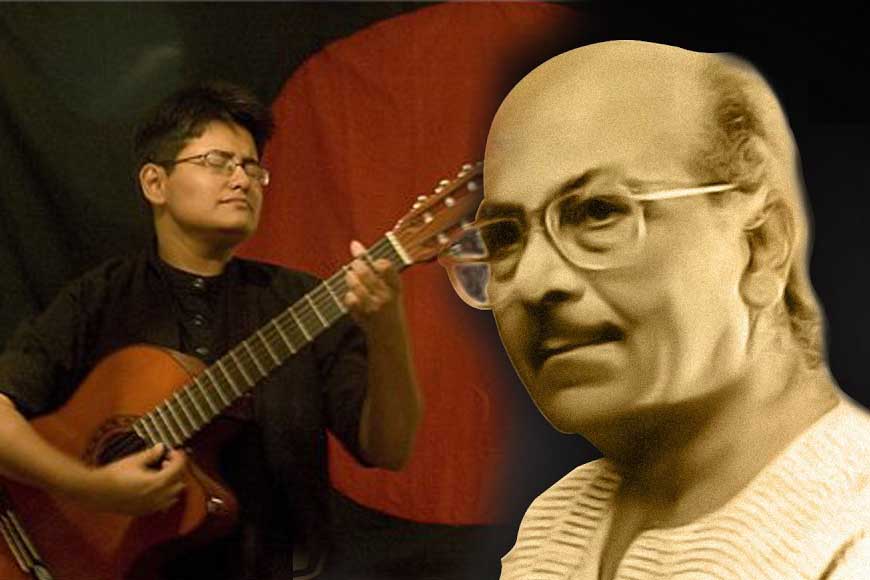Truth is missing in Bengali protest songs

What Salil Chowdhury searched through his protest songs, remembering numerous casualties in the bloody riots of 1948-49, food riots, farmers’ movement and after death of his close friend and poet Sukanto Bhattacharya, somewhere rings a chord with what singer, Farzana Wahid Shayan of Bangladesh sings these days, describing the present Bangladesh, recalling the Liberation War of 1971.
Her song O neta bhai, amay tumi bolle na to aage,
Desher Junno kaaj korile, gola barudh lage……
criticizes the state of student politics in present-day Bangladesh. That section of the society that was once responsible for staging daring protests during Bangladesh’s Mukti Yuddho is unfortunately overshadowed by corrupt politicians. Today is Salil Chowdhury’s birthday, and that’s more why his genre of songs that created an era of protest consciousness, rings a bell with what Farzana sings from the land on the other side of the barbed wire, a land where many of us had their roots.
It is said, Salil Chowdhury started writing songs at a very early age, and he was greatly influenced by Rabindranath Tagore, Pankaj Mullick and Jyotirindra Moitra (who wrote the 23-song epic Nabajeebaner Gaan). But he had the guts to flow against the tide, to protest against social injustice through his lyrics and music, some of which turned out to be iconic landmarks in modern Bengali music. When he calls his countrymen to fight the men in power, trying to divide and rule the nation, to fight against discrimination and racism, he pens down songs like O moder deshobaashi re. Despite being one of the most talented musicians of all times, Salil never got his due respect in the national circuit because of his political inclinations and comradeship. But doesn’t that what always happens to those who decide to take on the authority?
Just like Farzana says: “I am a nobody. I believe that everybody is a nobody. Life, I think is bigger than all of us and we are nothing in the grand scheme of things.” Songs from Farzana’s first album, Shayan’er Gaan, strays away from contemporary mainstream music scene of Bangladesh and in a sense reminds of songs composed by Maqsood and Azam Khan. They talk of random tales, politics, freedom, art, culture, sometimes bringing in Farzana’s own analysis, as she strums her guitar, complimented by her powerful voice taking over the listeners’ ears. Influenced by the likes of Leonard Cohen, Bob Dylan, Tracy Chapman and Bhupen Hazarika, Farzana’s songs are based on different stories. The song Ami tajjob boney jai was written on the homeless, living on streets, in Janatar Biyadobbi, she sings about the manner in which politics has made the common man a victim.
The new world order in which facts are a matter of belief has deep roots in both the Bengal. In this unreal time, when elections are to be won and historical wrongs to be avenged, truth is not even a perspective. Many decades later, listening to Farzana Wahid Shayan gives me hope that all is not lost. Dignity, self confidence and the courage to talk your mind still is the order of the day for this singer composer who makes powerful statement one after other in a country not very receptive to disruptive views.
Her genuine approach to music reflects her way of living. Plain and simple as ever which is precisely the reason why her songs have been considered by many to reflect a new wave of ‘protest music.’ Such musicians like Salil Chowdhury and Farzana, sing from their hearts, their words reflect what they feel, they are not directed to appease anyone. Courage is fast vanishing from the music scene, just like our voices of dissent are also aligning as per selfish needs.
The need of the hour is to have many more Salil and Farzana in the near future.









